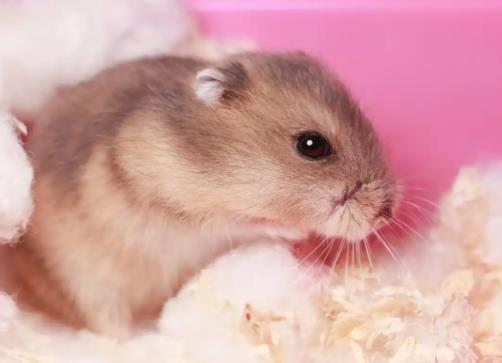The key to raising baby hamsters lies in providing appropriate diet, environment, and daily care.

Diet Management
Breastfeeding: Newborn baby hamsters mainly rely on breastfeeding in the first two weeks. If the mother hamster shows no willingness to nurse, you can dip a cotton swab in breast milk and smear it around the baby hamster's mouth to stimulate it to suck.
Bottle Feeding: If the mother hamster refuses to nurse, you can use specialized hamster milk powder and a feeding bottle. Choose milk powder that is sugar-free and fat-free, prepare it according to the ratio specified in the instructions, feed the baby hamsters 6 to 8 times a day, about 1 to 2 milliliters each time.
Introduction of Supplementary Foods: When the baby hamsters are 4 to 5 weeks old, you can start introducing supplementary foods. Grains such as oatmeal and cornflakes are the preferred choices. Gradually increase the intake of vegetables and fruits, and avoid adding meat-based foods too early.
Environmental Control
Temperature Control: Baby hamsters have high requirements for temperature. The suitable environmental temperature is between 20 and 25 degrees Celsius. You can use a heating pad or an electric blanket to maintain a stable temperature, and avoid direct sunlight and poor ventilation.
Humidity Regulation: The suitable environmental humidity is 50% to 60%. You can use a humidifier or place a water basin to maintain the humidity. Remember to change the water regularly and clean the water basin.
Space Layout: Newborn baby hamsters need a relatively large space for activities. You can choose to buy a specialized cage for young hamsters or divide the cage into two areas, one for sleeping and the other for activities and play.
Daily Care
Cleanliness: Clean the feces and food residues in the baby hamsters' cage every day to keep the cage clean and tidy. Thoroughly clean and disinfect the cage once a week.
Observation of Conditions: Closely observe the growth conditions and behavioral manifestations of the baby hamsters, such as their appetite, mental state, and defecation situation. When any abnormal situation is found, take timely measures.
Social Interaction: Let the baby hamsters gradually get used to the smell and touch of humans. As the babies grow older, you can try to stroke and pick them up with your hands to enhance the bond between you.
